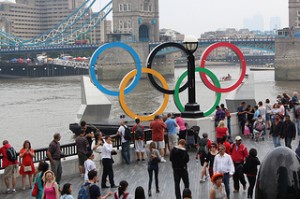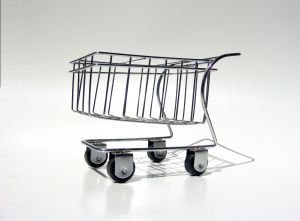 Test Becoming a brand sponsor of the Olympic Games is an expensive investment, and that investment doesn’t usually lead to an immediate uptick in sales. Instead, Olympics sponsorship typically delivers more long-term value in terms of increased brand awareness and reputation.
Test Becoming a brand sponsor of the Olympic Games is an expensive investment, and that investment doesn’t usually lead to an immediate uptick in sales. Instead, Olympics sponsorship typically delivers more long-term value in terms of increased brand awareness and reputation.
In fact, it could be argued that employees get more excited about Olympic Games sponsorships (and clients who often get free tickets to Olympics events thanks to those sponsorships) than consumers. Results from a Toluna Global Omnibus Survey revealed that most consumers in the United States don’t know which brands are sponsors of the Olympic Games.
In a survey of 1,034 U.S. consumers during the week of July 15, 2012 (just days before the 2012 Olympic Games started in London), most respondents could not correctly identify the sponsors of the upcoming 2012 Games. Here are the brands identified as sponsors by the survey respondents:
- Coca-Cola: Identified by 47% of respondents
- VISA: Identified by 41% of respondents
- McDonald’s: identified by 40% of respondents
- Nike: identified by 37% of respondents (note: Nike is not an Olympics sponsor)
- Pepsi: identified by 28% of respondents (note: Pepsi is not an Olympics sponsor)
- Adidas: identified by 24% of respondents
- P&G: identified by 21% of respondents
- Samsung: identified by 19% of respondents
- Burger King: identified by 19% of respondents (note: Burger King is not an Olympics sponsor)
- GE: identified by 18% of respondents
- British Air: identified by 17% of respondents
- UPS: identified by 17% of respondents
- Google: identified by 16% of respondents (note: Google is not an Olympics sponsor)
- BMW: identified by 13% of respondents
- BP: identified by 11% of respondents
- Continental: identified by 8% of respondents (note: Continental is not an Olympics sponsor)
- Cadbury: identified by 7% of respondents
Interestingly, when survey respondents were asked how each brand’s sponsorship of the Olympic Games made them feel about the brand, respondents indicated that the sponsorship made them feel more positively about the brand. This applied for all brands, including the brands that respondents erroneously thought were sponsors of the Olympic Games such as Google.
There are a couple of things to learn about this survey results. First, Olympics sponsorship does boost goodwill toward brands. Second, well-known brands that consumers expect to be associated with the Olympics in some way benefit from the event without investing in expensive official sponsorship. Placing some relevant ads, tapping into consumers’ emotions related to the Games, and keeping the brand top-of-mind can deliver similar results. For example, Advertising Age references a Nike campaign called “Find Your Greatness” that launched on the opening day of the Olympic Games in London. It’s a perfect way to merge the Nike brand promise with a current event (the Olympics) without investing hundreds of millions of dollars in sponsoring the Games.
What do you think of Olympic Games brand sponsorship? Is it worth the investment? Leave a comment and share your thoughts.
Image: Peter Burgess
Lucy is Editor at Corporate Eye


